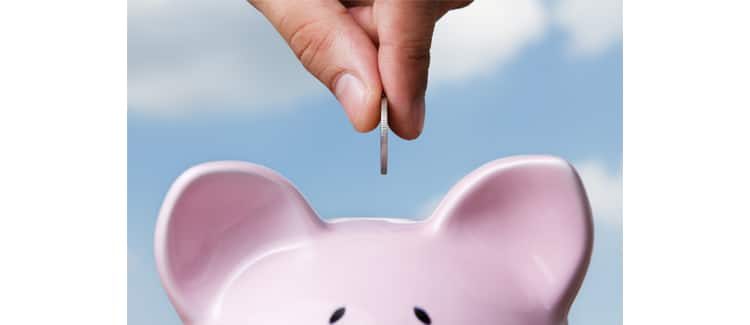Income Tax Rebate in India
An income tax rebate in India is a financial incentive provided by the Government of India to the taxpayers. It allows you to reduce your overall tax liability. A tax rebate is designed to encourage certain investments, such as savings, investments in specific instruments, or contributions to specific funds.
This article will help you to learn the important sections for income tax rebates under the Income Tax Act, 1961.
What is a Rebate in Income Tax?
An income tax rebate means a partial refund or reduction in the amount of tax owed to the Income Tax Department. It is a benefit provided by the Government of India to encourage savings and investment.
A tax rebate is typically granted for specific reasons, such as:
-
Investments
-
Deductions
-
Tax credits
It helps to lower the overall tax liability of an individual or a company by putting more money back into their pockets.
Rebates are a way to incentivize financial investments, promote compliance with tax laws, and achieve policy objectives while providing taxpayers with a financial benefit.
NOTE: The government removed most of the tax rebates and deductions in the new tax regime, which was newly introduced in the Union Budget 2023. However, you can claim income tax rebates and deductions under the old tax regime in FY 2023-24. Compare the new tax regime Vs. Old tax regime before filing your Income Tax Returns (ITR).
Example of Tax Rebate in Income Tax
Suppose Mr and Mrs X are senior citizens with a combined annual income of Rs. 8 lakhs in FY 2023-24. They have paid Rs. 60,000 in health insurance premiums for themselves and their dependent parents. They are eligible for a tax rebate of Rs. 60,000 on their health insurance premiums under Section 80D of the Income Tax Act, 1961.
How to Get Income Tax Rebate in India?
To avail of income tax rebate in India, you need to follow these steps:
Step 1: Gather the necessary documents. This includes investment proofs, certificates, receipts, and other relevant documents as per the rebate section you are claiming.
Step 2: File your Income Tax Return (ITR) using the appropriate form. The ITR form that you need to file will depend on your income sources and other factors.
Step 3: Ensure that you accurately report your income deductions and claim the rebate under the appropriate section.
Step 4: Verify and submit your ITR. Once you are satisfied that your ITR is accurate and complete, you can submit it electronically or manually.
If your tax liability is less than the taxes you have already paid (either through TDS or through advance tax payments), you will be eligible for a tax rebate. You will get the income tax refund from the Income Tax Department once your ITR is processed.
Income Tax Rebates Available Under New Tax Regime
The rebate under Section 87A and standard deductions for salaried individuals are available under the new tax regime for the Financial Year 2023-24 (AY 2024-25).
-
Section 87A Rebate: This rebate is available to individuals whose total income does not exceed Rs. 7 lakhs. The rebate amount is Rs. 25,000.
-
Standard Deduction: All salaried individuals are eligible for a standard deduction of Rs. 50,000 under the new income tax regime. This deduction is available regardless of whether the individual claims any other deductions or not.
Types of Rebates Available under Old Tax Regime
The following are the types of tax rebates available in the old tax regime in India for FY 2023-24:
| Section under IT Act | Type of Rebate | Description |
| Section 87A | Rebate for Individuals | A rebate of up to Rs. 12,500 for individuals with total income below Rs.5 lakhs. |
| Section 16 | Standard Deduction | Individuals with salary income can claim standard deductions of up to Rs. 50,000. |
| Section 10(14) | HRA Exemption | Exemption on House Rent Allowance (HRA) received by salaried individuals for rent paid. |
| Section 24(b) | Home Loan Interest Deduction | Deduction of up to Rs. 2 lakhs on interest paid on home loans for a self-occupied property. |
| Section 80C | Deductions on Investments | Deductions on various investments such as Provident Fund, PPF, ELSS, and more, up to Rs. 1.5 lakhs. |
| Section 80CCF | Infrastructure Bonds | Deduction for investments in long-term infrastructure bonds. |
| Section 80D | Health Insurance Premium | Deduction on premiums paid for health insurance policies, subject to specified limits. |
| Section 80DD | Deduction for Disabled | Deduction for maintenance of a disabled dependent, subject to specified conditions. |
| Section 80DDB | Medical Treatment Expenses | Deduction for medical treatment expenses for specified diseases for self or dependents. |
| Section 80E | Education Loan Interest | Deduction on interest paid on education loans for self, spouse, or children. |
| Section 80GG | Rent Paid Deduction | Deduction for individuals who do not receive HRA but pay rent. Subject to conditions. |
| Section 80TTA | Savings Account Interest | Deduction of up to Rs. 10,000 on interest earned from a savings account. |
| Section 10(5) | Agricultural Income | Exemption on agricultural income earned by individuals. |
| Section 10(34) | Dividend Income | Exemption on dividend income received from Indian companies. |
| Section 10(38) | Long-term Capital Gains | Exemption on long-term capital gains on the sale of specified assets. |
| Section 80G | Donations | Deduction for donations made to specified charitable institutions. |
| Section 80GGA | Scientific Research | Deduction on donations made to certain approved organizations for scientific research or rural development. |
| Section 80GGC | Political Contributions | Deduction for contributions made to political parties or electoral trusts. |
| Section 80RRB | Royalty Income Deduction | Deduction on royalty income received by authors of certain books, subject to specified conditions. |
| Section 80U | Disability Deduction | Deduction for individuals with disabilities, subject to specified conditions. |
| Section 10(16) | Family Pension | Exemption on family pension received by the widow or children of a deceased employee. |
| Section 54 | Capital Gains on Property | Exemption on capital gains from the sale of residential property, subject to conditions. |
| Section 54EC | Capital Gains Bonds | Exemption on capital gains reinvested in specified bonds within six months. |
| Section 54F | Capital Gains on Assets | Exemption on capital gains when the sale proceeds are reinvested in specified assets. |
FAQ's
-
Who is eligible for tax rebate in India?
Individual taxpayers who are resident individuals are eligible for a tax rebate under Section 87A of the Income Tax Act when their total income does not exceed Rs. 5 lakhs under the old tax regime and up to Rs. 7 lakhs under the new tax regime. -
What is the maximum tax rebate in India?
The maximum tax rebate in India in 2023 under the new tax regime is Rs. 25,000. This rebate is available under Section 87A of the Income Tax Act to individuals with a taxable income of up to Rs. 7 lakh who opt for the new tax regime. In the old tax regime, the maximum tax rebate is Rs. 12,500, along with other tax deductions and exemptions. -
How will I get a tax rebate?
To get a tax rebate in India, you must follow these steps:-
Check your eligibility
-
File your income tax return (ITR)
-
Claim the tax rebate in your ITR form
-
Submit your ITR form
-
-
How is Rs. 7 lakhs income tax-free?
According to the Union Budget 2023-24, individual taxpayers with an income of up to Rs. 7 lakh will not have to pay any income tax under the new tax regime. This is because the government has introduced a tax rebate of Rs. 25,000 under Section 87A of the Income Tax Act for taxpayers with a taxable income of up to Rs. 7 lakh who opt for the new tax regime.
˜The insurers/plans mentioned are arranged in order of highest to lowest first year premium (sum of individual single premium and individual non-single premium) offered by Policybazaar’s insurer partners offering life insurance investment plans on our platform, as per ‘first year premium of life insurers as at 31.03.2025 report’ published by IRDAI. Policybazaar does not endorse, rate or recommend any particular insurer or insurance product offered by any insurer. For complete list of insurers in India refer to the IRDAI website www.irdai.gov.in
*All savings are provided by the insurer as per the IRDAI approved insurance plan.
^The tax benefits under Section 80C allow a deduction of up to ₹1.5 lakhs from the taxable income per year and 10(10D) tax benefits are for investments made up to ₹2.5 Lakhs/ year for policies bought after 1 Feb 2021. Tax benefits and savings are subject to changes in tax laws.
¶Long-term capital gains (LTCG) tax (12.5%) is exempted on annual premiums up to 2.5 lacs.
++Source - Google Review Rating available on:- http://bit.ly/3J20bXZ


- SIP Calculator
- Income Tax Calculator
- Compound Interest Calculator
- NPS Calculator
- Show More Calculator
Income Tax articles
Explore the popular searches and stay informed
- LIC
- Investment Plan
- Annuity Plan
- Child Plan
- Pension Plan
- ULIP Plan
- Child Investment Plan
- SIP
- LIC Calculator
- SIP Calculator
- SBI SIP
- ULIP Calculator
- Sukanya Samriddhi Yojana
- Best SIP Plans
- Retirement Planning
- SBI SIP Calculator
- HDFC SIP Calculator
- Sukanya Samriddhi Yojana Interest Rate
- NPS Interest Rate
- Deferred Annuity Plans
- SBI Annuity Deposit Scheme Calculator
- Immediate Annuity Plans
- Post Office Child Plan
- Prime Minister Schemes For Boy Child
- Government Schemes for Girl Child
- 50k Pension Per Month
- Atal Pension Yojana Calculator
- Best Pension Plan in India
- CIBIL Score
- 1 Crore Term Insurance
- Best Term Insurance Plan
- Term Insurance for Women
- Term Insurance for NRI
- Term Insurance
- Term Insurance Calculator
- Life Insurance
- Term Insurance with Return of Premium
- Whole Life Insurance
- Term Insurance vs Life Insurance
- What is Term Insurance
- Life Insurance Calculator
- 5 Crore Term Insurance
- 2 Crore Term Insurance
- 50 Lakh Term Insurance
- Term Insurance for Housewife
- Benefits of Term Insurance
- Term Insurance Terminology
- Medical Tests for Term Insurance
- Term Insurance for Self Employed
- Claim Settlement Ratio
- 10 Crore Term Insurance
- Term Insurance for Smokers
- 1.5 Crore Term Insurance
- Zero Cost Term Insurance
- Home Loan Insurance Calculator
- FIRE Calculator
- EMI Calculator














